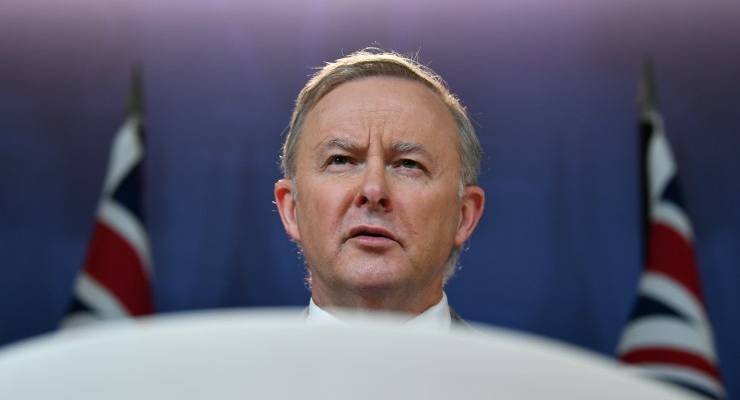
The news that Anthony Albanese is neck-and-neck with Scott Morrison as the nation’s preferred prime minister would have earned a few smiles from Labor hopefuls. But polling experts warn against focusing too much on this over other measures.
On Sunday night The Australian released the results of its latest Newspoll that found 42% of respondents thought the opposition leader would make a better PM than Morrison, with 16% uncommitted.
The poll, conducted by YouGov between Wednesday and Saturday last week with a sample of 1520 people, also had Labor maintaining its previous lead with a 6% primary vote advantage over the Coalition.
Much of the coverage of the fortnightly poll led with the “better prime minister” result, with news.com.au calling it “ScoMo’s huge pre-election blow”. But is it?
Beyond obvious warnings that any single polling result should be taken with a grain of salt due to natural sampling error (although Albanese’s improvement on this rating is part of a longer trend), psephologists have questioned how well the rating correlates with electoral outcomes long before the most recent result.
The issue with the “preferred prime minister” rating is that it’s a false equivalence between two individuals in different positions, Essential’s executive director Peter Lewis tells Crikey.
“We think it’s a fairly crude measure,” he said. “When you say preferred prime minister, you compare with someone who hasn’t done the job.”
In this case, Albanese is competing against Morrison for a position that only one of them has held.
Similarly, executive director of Utting Research John Utting says his staff’s analysis on 20 years of polling results found there was no correlation between vote outcome and preferred prime minister.
“To give you an example, the highest preferred prime minister scores were gotten by Alexander Downer and Mark Latham,” Utting said on the Fourth Estate podcast in February.
But Lewis says there is still good news in these results for Labor supporters. Typically, preferred prime minister is weighed towards the incumbent and a handicap for the challenger. That Albanese is even with Morrison is a good sign, he says.
“There are a number of data points that you can look at and the fact that the opposition leader is ahead of the prime minister is a positive sign,” he said.








In this case, Albanese is competing against Morrison for a position that only one of them has held.
And that one has performed so badly in the role that I would have thought the proverbial drover’s dog would beat him.
I’ve always assumed the “preferred PM” question has been mindlessly copied from the US, like so much else. There, it makes sense, because the President is separately elected. Here. despite the way the media and others look at it, we never vote for PM.
Agree – it is irrelevant as an indicator of voting intentions (if so firm a word can be used) but it does serve the purpose for lazy churnalists and their malignant owners to create a false narrative out of whiole cloth.
The fat coal miner has billions of dollars at stake if he can not divert enough preferences to the To Slow No Show Teflon coated Gold Standard compulsive liar to another”miracle ” win. To the fat miner, the spending of $100million on advertising lies is an investment that will pay him handsomely
Anything needed to change government is in the ring.We can not have this bunch of rorting liars returned at the next election.
Albo has lost weight, which he needed to do, and the constant references to his ‘makeover’ is cheap journalism. How about talking about Scott’s weight gain which may reflect on his lack of action on the many environmental disasters and pandemic complexities.
Yes. Losing 20% of body weight is not a “makeover”. He wants the job, and he wants to be fit when he has it. He is committed.
i always expect that “preferred Pm’ question to be in favour of the incumbent – the telling stat is whether that is heading south or not.
When the incumbent drops below the aspirant, then that is double trouble.
I use that plus the 2PP poll to make my best guess on who fortune is favouring.